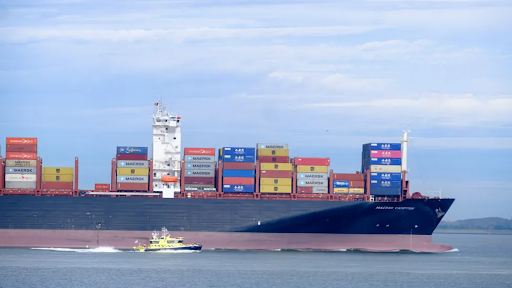Recent attacks on commercial ships by Houthi rebels in Yemen in the Red Sea have sparked serious concerns about the potential rise in oil prices and disruptions in the global supply chain. With major shipping companies like Maersk rerouting their vessels and the US launching Operation Prosperity Guardian to ensure safe passage, the situation has escalated into a significant international issue. The consequences of these attacks extend far beyond the immediate region, affecting global markets and trade routes.
Analysts warn that the ongoing attacks in the Red Sea pose a significant threat to the stability of oil prices and the flow of goods worldwide. Several firms, including Maersk, the world’s second-largest shipping line, have suspended shipments through this critical route due to safety concerns. In response, Maersk announced rerouting some vessels around Africa’s Cape of Good Hope, a significant detour that adds considerable time and cost to shipments.
The severity of the situation led the US to initiate Operation Prosperity Guardian, an international naval operation with participation from the UK, Canada, France, Bahrain, Norway, and Spain. This collaboration aims to protect ships traversing the Red Sea. US Defense Secretary Lloyd Austin emphasized the need for a robust international response, stating, “These reckless Houthi attacks are a serious international problem, and they demand a firm international response.”
The UK Ministry of Defence confirmed the involvement of the Royal Navy destroyer HMS Diamond in the task force, citing the deteriorating security situation. The Red Sea, a vital corridor for oil, liquefied natural gas, and consumer goods, is strategically located between the Bab al-Mandab Strait and the Suez Canal.
The Houthi rebels, who have expressed support for Hamas, claim their attacks target vessels bound for Israel. However, companies like Investor Chemical Tankers, whose Swan Atlantic vessel was recently attacked, deny any links to Israel. The use of drones and missiles, including ballistic missiles, has intensified the threat level, making it challenging to ensure the safety of these ships.
Despite the international effort to safeguard the Red Sea route, companies like Maersk and Hapag-Lloyd remain cautious about resuming regular journeys. The alternative route via the Cape of Good Hope considerably lengthens travel time, impacting delivery schedules and costs.
The attacks have already ripple effect on the oil industry, with BP pausing shipments through the Red Sea. Though oil prices have shown minimal change so far, there are concerns that prolonged disruption could lead to significant increases.
Simon Williams from the RAC motoring group highlights the potential impact on fuel prices, urging caution against premature price hikes. Meanwhile, Richard Meade of Lloyd’s List and Marco Forgiona of the Institute of Export and International Trade discuss the broader implications for global trade and supply chains.
The attacks in the Red Sea represent a critical challenge to international trade and energy security. While the immediate impact on oil prices has been limited, the potential for long-term disruption remains a significant concern. The international community’s response, as seen in Operation Prosperity Guardian, underscores the need for collective action to ensure the safety and stability of these vital maritime routes. As the situation evolves, the world watches closely, hoping for a resolution that safeguards both the flow of goods and the stability of the global economy.























+ There are no comments
Add yours